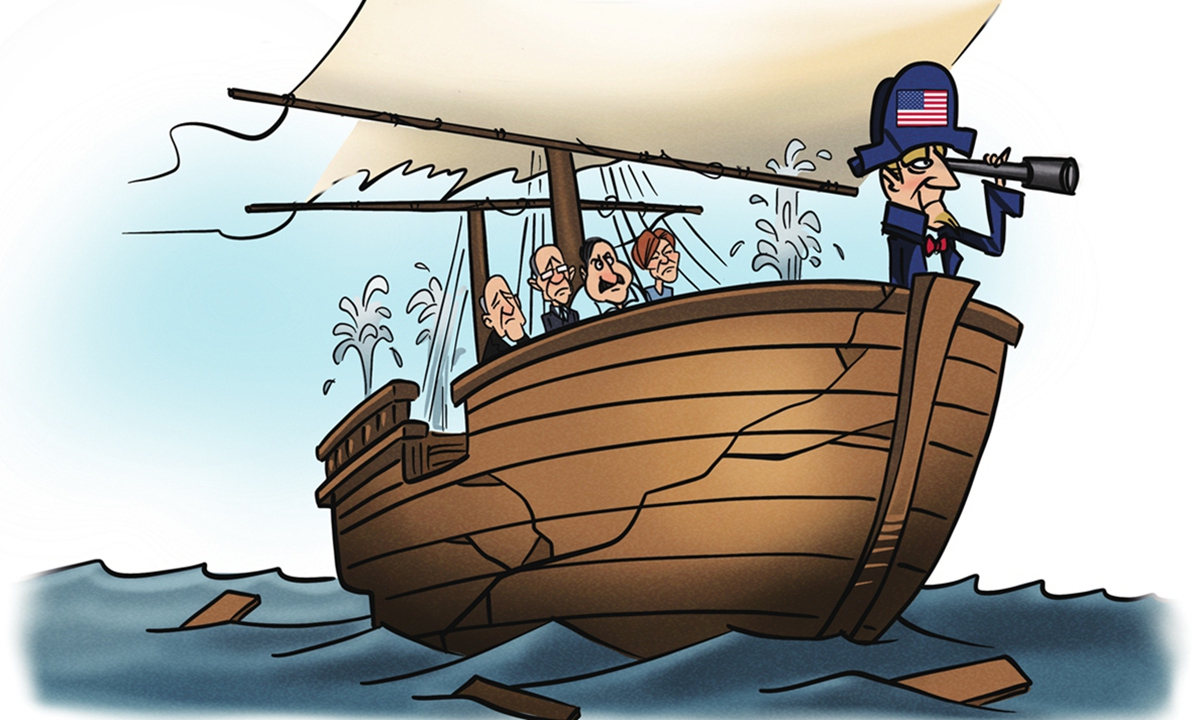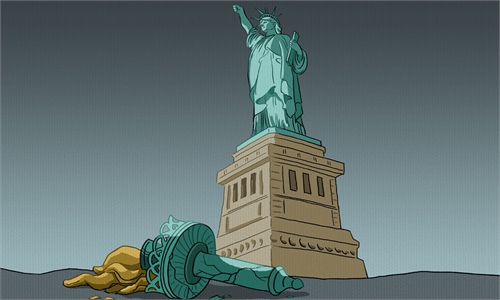
Illustration: Liu Rui/GT
Long-term prosperity has not only given American people a comfortable life, but also emboldened American elites to think that "America is always right" when it comes to foreign policy, a mindset that has become a kind of political correctness that cannot be challenged, though some have tried to point out that such a view is actually making it difficult to correct wrong policies.
Foreign Policy magazine recently published an article titled "Democrats and Republicans Agree That America Is Always Right," which argued that although Americans are sharply divided domestically, "when it comes to foreign policy, Americans and their political parties are much more aligned … Alignment is based on a continued fantasy of American preeminence globally."
Experts pointed out that although US' economic strength and soft power are in decline, US politicians are still obsessed with maintaining its privilege, pursuing unilateralism, and interfering in the internal affairs of other countries on the grounds of values. Under partisan struggles, the ruling party is often forced to increasingly take dangerous moves externally to score points domestically.
In terms of why US political elites are blindly arrogant toward other countries, Lü Xiang, research fellow at the Chinese Academy of Social Sciences, told the Global Times that many older US politicians, including the recent two presidents, grew up when the US was at its strongest and they are still steeped in the mentality that the US would be omnipotent. And among younger politicians, many studied political science in university. In the US, it is a subject concentrated on a very narrow Cold War education, under which the US is always right. In this context, it is very difficult to produce politicians capable of reflection within US' political decision-making circles.
It was noticeable that US side's tone during the summit between Chinese President Xi Jinping and US President Joe Biden on Monday was conciliatory. This is mainly because even US' closest allies seem to turn away from it. When Washington is attempting to unite its allies into a force to contain China, it turns out that few of them genuinely follow its steps.
Martin Jacques, wrote in the Global Times that the US is finding it far more difficult to isolate China than it anticipated. The world is very different from what it was during the Cold War when it was divided into two hostile and hermetically sealed blocs.
The non-Western world is on the rise, while the US is declining, and the days when Washington could do whatever it wanted diplomatically are gone. If the notion that "America is always right" is not amended, a mounting pile of problems will be witnessed. Unfortunately, judging from the current situation, it is hard to say whether Washington will make adjustment in this regard.
Against the backdrop in which the US political elites are overconfident and short of reflection, the country's foreign policy is detrimental to protecting its national interests. Instead, it will accelerate the decline of the US. At the same time, it is also a disaster for the international community.
The practices of US politicians in pursuing unilateralism have brought remarkable disorders to the stability of the international order.
In addition, while US' domestic affairs are in a mess, it tends to apply double standards when criticizing other countries governance approaches.
The growing division between the US and its allies will be the trend. Especially when President Joe Biden is to solidify them to fight against China, it is actually taking the initiative to disintegrate this alliance system.

